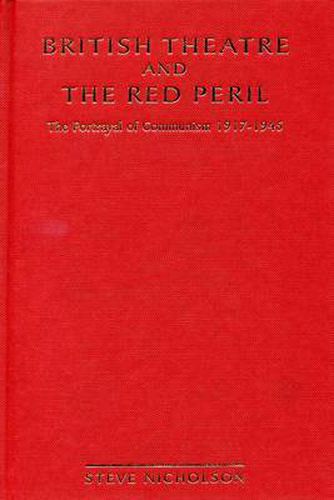Readings Newsletter
Become a Readings Member to make your shopping experience even easier.
Sign in or sign up for free!
You’re not far away from qualifying for FREE standard shipping within Australia
You’ve qualified for FREE standard shipping within Australia
The cart is loading…






This work explores how communism was portrayed in plays in the British theatre between 1917 and 1945, and how at a time when the capitalist system seemed on the verge of collapse, the theatre played a significant part in communicating and manipulating political propaganda in order to influence audiences. It reveals explicit right-wing propaganda produced within mainstram British theatre and questions the assumption that political theatre is almost always left-wing. It draws on published and unpublished scripts and archive documents and includes a chronological table of important events and productions between 1917 and 1945. It discusses the methods by which the Lord Chamberlain, the government and even royalty exerted control over the political views voiced on stage in an age when contemporary commentators described the theatre as second only to the press in terms of its significance as a medium of communication.
$9.00 standard shipping within Australia
FREE standard shipping within Australia for orders over $100.00
Express & International shipping calculated at checkout
This work explores how communism was portrayed in plays in the British theatre between 1917 and 1945, and how at a time when the capitalist system seemed on the verge of collapse, the theatre played a significant part in communicating and manipulating political propaganda in order to influence audiences. It reveals explicit right-wing propaganda produced within mainstram British theatre and questions the assumption that political theatre is almost always left-wing. It draws on published and unpublished scripts and archive documents and includes a chronological table of important events and productions between 1917 and 1945. It discusses the methods by which the Lord Chamberlain, the government and even royalty exerted control over the political views voiced on stage in an age when contemporary commentators described the theatre as second only to the press in terms of its significance as a medium of communication.